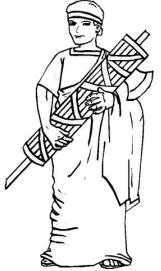2025-05-07
Fascism is one of those words which student protesters hurl at protestees (is there such a word? I don't see why not) with whom they imagine that they disagree. And it is true that words can morph through constant misuse to mean something quite different to their original purpose, although Humpty Dumpty might not agree.
One might in passing expect students to be better informed, but these days, rightly or wrongly, we don't.
"Fascism" as a word was used back in the day by Mussolini, "Il Duce", and has its etymological root in the bundle of sticks (with enwrapped axe) carried by Roman enforcers as a symbol of their authority. You didn't in those days argue with the representative of the Emperor, and Il Duce didn't want anyone to argue with him.
So "fascism" has come to mean much the same as dictatorial power, and is (theoretically) the opposite of democracy.
These days (as in Il Duce's days) the fascism is founded on the joint enterprise of corporations backed up by the coercive powers of government - it cannot have failed to register that these days everything that isn't elected (and quite a few that are elected) is (legally or not) constructed as a corporation, to which the government is in the habit of subcontracting its actual activities - hence the uncountable (and largely unaccountable) plethora of NGOs QUANGOs and "charitable foundations" that vanishingly few of us fully understand.
This is probably deliberate, as there are insufficient years in our lives already without the need to study understand and then argue all the statutory and non-statutory intricacies of modern-day governmental and corporate practice as it affects our grievances (but we have AI for that now!).
But I digress.
For the education of the time-constrained, Godfrey Bloom provides a useful homily on the nature of today's "fascism":
(4 minutes)
Like / Dislike this video here.



